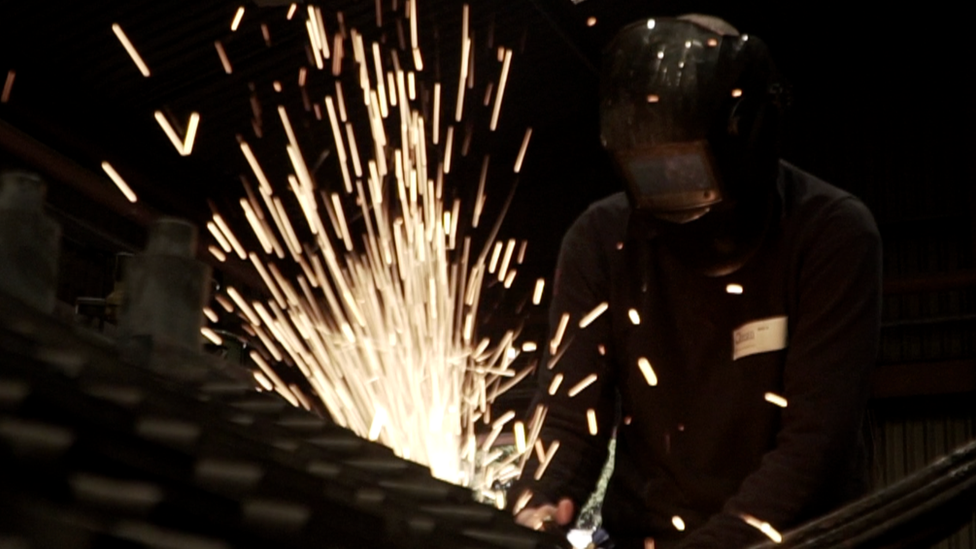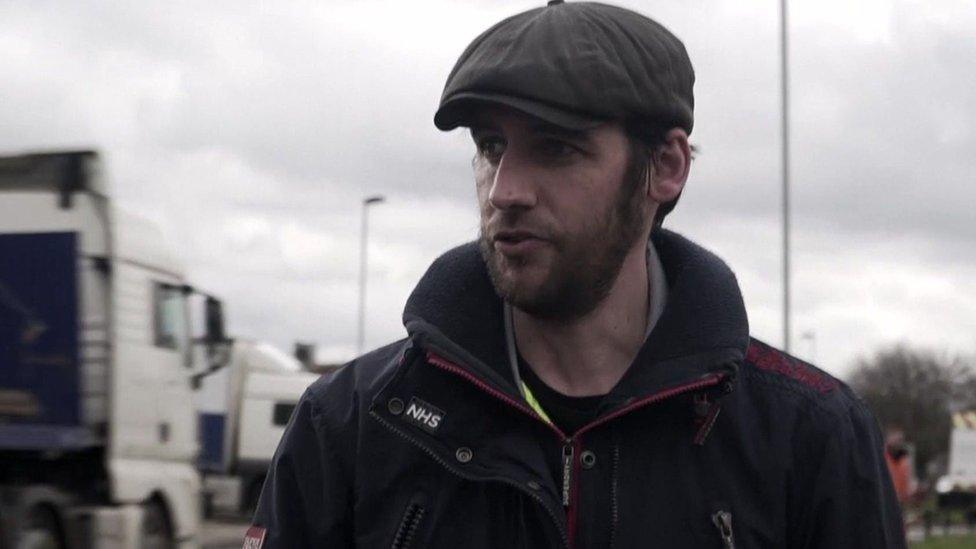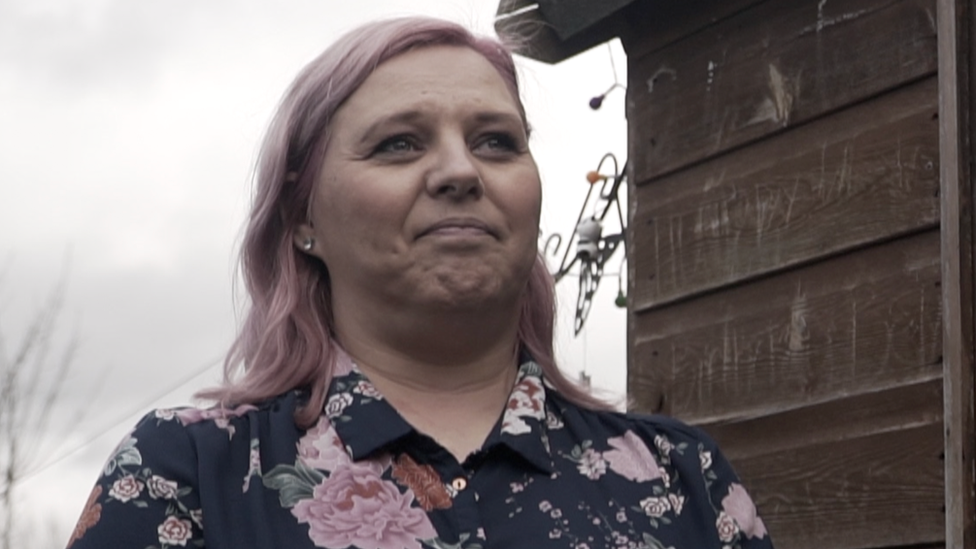Why are some towns struggling to shake off Covid-19?
- Published

People in jobs that can't be done from home carry added Covid risk
For weeks now, Covid-19 infection rates have been falling across the UK.
But there are some towns that have bucked the trend, with infections remaining stubbornly high.
This is particularly true of towns where the local economy relies on manufacturing, construction or food processing jobs - the kind of work that simply can't be done from home.
That becomes obvious on the shop floor of Owen Springs in Rotherham, where the sparks are flying.
For nearly 40 years this South Yorkshire firm has manufactured springs for cars, vans and trains.
This is labour that is hard, physical and hands-on, the red-hot metal being beaten and pressed into shape.
Nick Naylor, the managing director, says the pandemic has meant a re-think about how to keep the business going - while making sure staff stayed safe.
"This is old fashioned Sheffield metal bashing. We heat treat it and get it into shape, we can't do it separately, we do it as a team.
"It isn't something you can sit at home and do," he says.
"So we have staggered breaks and working times, we have people who have buddied up in twos who always work together.
"It has been something we've had to learn as we go along, as everybody else has, what works, what doesn't work, how to keep people safe, and anything else that has been the priority while we keep the business standing up, waiting to get on with it."
But Rotherham is one of those towns that has struggled to get infection rates down.
Even when they do fall, they do so slowly, and cases remain stubbornly over 100 cases per 100,000 people - while the average area in England has 45.
Ben Anderson, the director of public health at Rotherham Borough Council, describes a potentially deadly combination of a virus that thrives on contacts, and the type of face-to-face jobs the local economy depends on.
"This is a disease of inequalities," he says.
"We see the structural make up of our economies, and Rotherham is a particular example, of economies across Yorkshire and the North East, and the North West where we have a lot of people in low skilled low-waged jobs.
"We have a lot of people in construction, manufacturing, and jobs that people have to go out to work in.
"They can't work from home, and all of that means more people are out in work places and commuting to and from work to places in the community, which all raises that transmission rate.
"And all of those structural factors just mean we will always have more people circulating and more people at risk of disease."
'Above and beyond'
One way to break what health experts call the "chain of transmission" of the virus is to make sure people can isolate properly if they get a positive test, or live with someone who has.
Some people have faced a choice between putting food on the table and isolating.

Neil knows he'd get paid even if he had to isolate
So the support of your employer is vital.
In that regard, Neil Bingham is lucky.
He's worked for the same warehouse company in Rotherham for 14 years, and continued to do so throughout the pandemic.
The irony is that the warehouse was supplying products to help people working from home.
But Neil knew that he'd still get paid even if he had to isolate.
"It's always on your mind, you're always going to worry about travelling to and from work, being in work and around people.
"The company I work for have been so good, they really have gone above and beyond to make sure we are as protected as we can be," Neil says.
"But yeah, you do sort of worry, what if I do a test and it does come back positive?
"But we were always told that if that was the case, that we would still get paid anyway.
"So that was always a bit of comfort and a bit of reassurance, I suppose."
'Weary' of following the rules
But away from the workplace, there's also the fatigue of living through months of lockdowns and restrictions.
In East Dene, a relatively deprived area of Rotherham, Claire Drury has been working hard to keep her community going with virtual coffee mornings.

Claire holds virtual coffee mornings in East Dene, in Rotherham
But she knows people are growing weary of following the rules.
"We've had people who have said they actually feel like going and breaking the rules - going to see a friend, going to see relatives they've not seen for a year.
"I do understand how they feel and how desperate they are starting to get.
"I want this lockdown to end and I want it to stop, full stop," Claire says.
"I really, really want people to follow the rules so that we can keep opening up.
"If we continue with people meeting and breaking the rules, it's just not going to happen and we will be looking at longer in lockdown."
This is the danger for towns like Rotherham - that as the rest of the country comes out of lockdown, they still face high infection rates.
That would mean communities that were already struggling before the pandemic, and have been hit hardest during the last year, are left further behind.